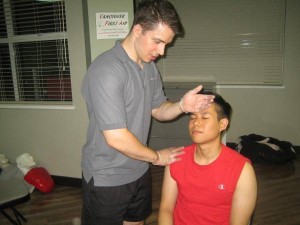A fever acts as a sign of many medical conditions, including infections. For example, a mild fever often indicates an incoming viral infection such as influenza or the common cold. A fever that is accompanied with a nasal congestion and headache results in sinusitis and a fever accompanied by a rash is a sign of measles.
Your normal temperature only varies slightly from the average body temperature i.e. 98.6 F or 37 C. For adults with fevers below 102 F or 38.9 C, the fever fades away on its own and needs no medication unless prescribed by the doctor. If your fever is above 102 F, then your doctor will recommend taking over-the-counter medication such as ibuprofen and acetaminophen.
However, for children and infants, care should be taken even if the 
Causes of fever
- Hot weather or spending too much time under the sun
- Bacterial or viral infection
- Allergic response towards medication or food
- Childhood immunization
Symptoms
- Hot skin
- Flushed face
- Nausea and vomiting
- Headaches and pain in the body
- Constipation
- Diarrhea
- Loss of appetite-food tastes bland
Call a doctor if the following symptoms appear:
- Severe headache
- Unusual skin rash
- Sore throat
- Unusual sensitivity o the eye towards bright light
- Persistent vomiting or nausea
- Mental confusion
- Delirium
- Lethargy
- Stiff neck and pain while bending the head forward
- Difficulty in breathing
- Chest pain
- Unusual hyper-activeness or irritability
- Pain while urinating or abdominal pain
- Convulsions
- Other unusual symptoms
Treatment
- Take the temperature. You can use a thermometer to measure the temperature of your body. There are digital thermometers as well and there are some that measure temperature promptly from the ear canal while others measure temperature under the arm, orally or rectally. Glass thermometers are not recommended as mercury contained in them is harmful when ingested or touched by the skin.
- Do NOT try to wrap the person with blankets as this will just worsen the fever. Remove any warm clothing, sweaters or any other excess clothing, if practical.
- A sponge bath is recommended in cool water to sap the fever. Compressing cool sponges is helpful too.
- Take plenty of fluids especially those rich in vitamin C.
- Take prescribed doses of medication. Aspirin is not recommended for people under 19 years of age.
Learn to Recognize and Manage
To learn to recognize and manage fever’s with young children you can take a workplace approved first aid course such as standard or emergency childcare first aid (find your course here). Both of these courses are offered weekly at Red Deer First Aid.
Related Video on Fever’s in Children
